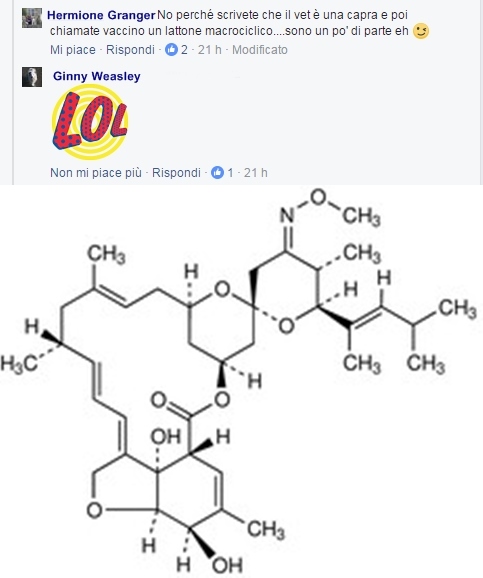I “vaccini” per la filaria non sono vaccini!
Queste parole le ho scritte io qualche giorno fa. Era una delle solite discussioni in cui, i veterinari, quando le cose vanno storto, vengono accusati di essere gli unici responsabili. Negli anni ho imparato ad ignorare queste discussioni e queste accuse ma, tuttavia, non posso ignorare i sacrifici che ho fatto e sto facendo per laurearmi in medicina veterinaria, per cui… a volte reagisco… Per farla breve, la vicenda vedeva coinvolto un cucciolone di Australian Shepherd, defunto dopo l’iniezione annuale per la prevenzione della filariosi (Guardian SR – Moxidectina). In verità non era del tutto chiaro se il cane fosse morto a causa di questo prodotto, o in seguito all’ingestione di una pianta velenosa presente in giardino ma, secondo la massa, era stato ucciso da un veterinario ignorante. La discussione ha presto raggiunto il tetto dei 200 commenti, molti dei quali senza senso.
Innanzi tutto la gente si ostina a non credere che tutte le avermectine (ivermectina, moxidectina, milbemicina, selamectina….) sono SICURE per la prevenzione della filaria nei cani MDR1 (Multi Drug Resistance Gene). il dosaggio utilizzato a questo scopo è bassissimo e non dà alcun problema. il discorso sarebbe diverso se usassimo dosi molto più elevate, come quelle necessarie per trattare la rogna sarcoptica e la rogna demodettica. Se ancora non mi credete, né credete al vostro veterinario, piuttosto che credere a vostro “cuggino”, leggetevi questo articolo scientifico. “Toxicology of Avermectins and Milbemycins (Macrocylic Lactones) and the Role of P-Glycoprotein in Dogs and Cats”. Inoltre, non ha senso l’isterismo nei confronti di una di queste molecole (in genere il bersaglio preferito è l’ivermectina): dire “non uso ivermectina perché il mio cane è MDR1 e non è sicura, quindi somministro moxidectina”, dichiarando ciò vi date degli idioti da soli. Sono la stessa cosa! Sono lattoni macrociclici! [Se conoscete i farmaci secondo il loro nome commerciale, basta guardare sulla scatola per scoprire qual è il principio attivo].

Altra confusione circonda il Guardian SR, ovvero la moxidectina iniettabile a lungo rilascio, somministrata una volta all’anno. Questo prodotto è ritenuto in grado di proteggere il cane per almeno 6 mesi, ovvero per tutta la stagione delle zanzare. Si tratta di un FARMACO, non di un VACCINO. i vaccini sono un’altra cosa: quando usate questo prodotto NON state vaccinando il cane per la filaria (nome scientifico Dirofilaria immitis, immitis in latino vuol dire crudele). Questo prodotto è identico al Guardian in compresse (moxidectina), che però va dato una volta al mese. Alcuni proprietari e alcuni veterinari preferiscono l’iniezione poiché ritenuta più comoda.
Personalmente… Non mi piace l’idea di dare al cane un farmaco destinato a rimanere per mesi nel suo organismo. Vi spiego i miei perché:
Non so con assoluta certezza quanto rimarrà nel suo corpo;
Non so come e a quale velocità verrà metabolizzato;
Mi pongo il problema degli effetti collaterali. Il prodotto è ritenuto sicuro ma ciò non toglie che un cane possa avere una reazione avversa, a quel punto non potrei fare nulla. Non ci sono antidoti e ci vorranno mesi per smaltire tutto il prodotto (e quindi mesi di effetti collaterali!)
Quindi, torniamo all’Australian Shepherd che ha ispirato questo articolo. Cosa è successo nel suo caso? A quanto ne so, il cane non era stato testato per il gene MDR1, quindi non sappiamo se fosse davvero ipersensibile ad alcuni farmaci. Sappiamo, tuttavia, che gli è stata somministrata moxidectina iniettabile a lento rilascio. Sappiamo che le compresse di moxidectina per la filaria sono sicure in cani con gene MDR1, ma l’iniezione? Teoricamente è sicura anche se la Washington State University, sul suo sito, la sconsiglia in razze a rischio per MDR1. Condivido il loro punto di vista (nel dubbio è meglio esagerare con la prudenza) e non la consiglierei a cani giovani per due motivi: 1) possono essere più sensibili ad alcuni farmaci e 2) essendo i cani ancora in crescita, dovrei usare un dosaggio più alto rispetto al peso corrente.
In ogni caso, spero di aver contribuito a fare chiarezza, e per cortesia non andate in giro a dire che i veterinari sono “capre” mentre cercate di sembrare furbi definendo vaccino un lattone macrociclico .